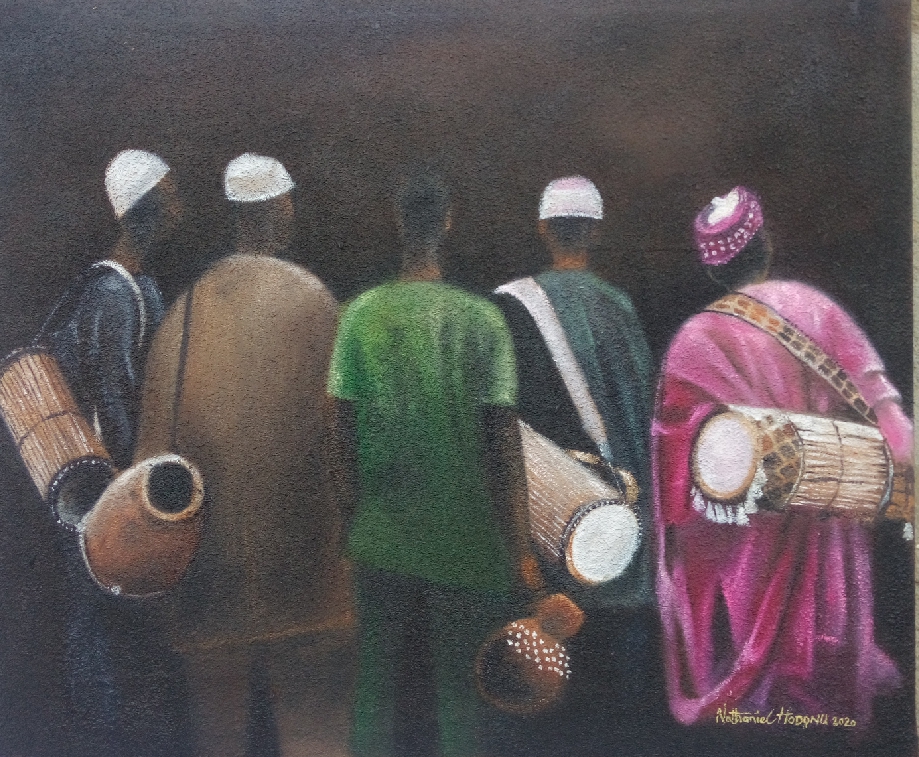Giving girls voice unmistakably loud enough to be heard
By Anote Ajeluorou
FICTION for advocacy is not new. In fact, fiction that campaigns and amplifies certain positive positions in condemnation of a negative one is indeed why most writers write, to make society better for everyone in all its segments. Particularly, the girl-child has been adjudged the most vulnerable and endangered species that needs special attention. This position is yet again amplified in Abi Dare’s devastatingly pungent fiction The Girl with the Louding Voice (Spectre-Hodder Stoughon, London; 2020) that lays bare some of the starkest and heart-wrenching moments for the girl-child.
Adunni, the girl with the loud voice, is to be found in every village, every disadvantaged community and every ghetto where the basics that guaranty human dignity are grossly lacking. In fact, her case is even worse: her father, like most fathers, is the Igbo version of efulefui, a miserable lay-about who has no business bringing a soul into the world. But he does, two boys and a girl; he cannot send any of them to school. The boys have to settle into learning a trade. The only girl in the family does not only have her dream of getting education aborted as soon as her mother, who fries puff-puff from daybreak till dusk, dies, she must be married off for the lazy father to be able to feed himself from her bride prize and proceeds from a grateful in-law who is expectant that the new wife will somehow magically have the son he so desperately desires after marrying two wives who keep giving him girls.

Dare is unsparing in her portraiture of this stark situation that is so pervasive. And to think we’ve all supposedly emerged from the dark era where a girl’s education has begun to mean the same just as the boys is searing. Yet some fathers like Adunni’s refuse to wake up from the dark past. Of course, there’s enough justification for his obtuseness: a woman’s hope of making meaning out of life is in her husband’s home. There’s the ready example of Tola, the daughter of Adunni’s father’s friend who got educated and works in a bank but has no husband to show for all her father’s wastefulness in educating her. So he is not about to allow his only daughter to suffer a similar sad fate. And Dare’s ingenuity shines through when she makes Adunni’s father nameless in the narrative to affirm the universality of his odious character, of fathers who would abort their daughter’s dreams for the good life and condemn them to a life of eternal bondage.
When Adunni’s mother dies, her father is firm about her fate: no more schooling. A good husband is the only way for her at 14; her schooling had been epileptic because her mother wasn’t always ready with the fees, so she is always the biggest in her class, but Adunni is not worried about the taunts she received from her classmates. Her father cannot even afford the house rent; that is when taxi driver and old man Morufu comes into the picture; he wants Adunni for his third wife, so she can have a son for him. Adunni is forced into a marriage she does not want at 14.

This is when her ordeals truly begin. She passes through fire just to fulfill her marital obligation to an old man on a mission to have a son. Luckily, she finds an ally in Khadija, the second wife even as the first wife gives her hell for the humiliation of sharing her husband with a girl her daughter Kike’s age mate. On her first night, her husband Morufu lays out the lie of the land for Adunni:
“Kike is her name. My first born. She is your age, Adunni. Since then, we have done many more sacrifices but I think the gods of the river vexed for Labake. No another baby. I marry second wife, Khadija. Big mistake! Big mess! Why? Because Khadija is having three girls: Alafia, Kofo and I forget the name of the last born now. No boy. Adunni, your eyes are not blind, you can see very well that Khadija is carrying a new babe. I have warned her that if it is not a boy-child inside that stomach. Her family will not collect food from me again. I swear I will kick her back to her hungry father’s hose. Not so?”
Khadija’s response underscores the totality of the sheer abandonment of the fate of women in similarly helpless situations.
“God is not wicked,” Khadija say to the wall. “This is a boy-child.”
Marrying Morufu wasn’t Adunni’s idea and she is determined to thwart the set up. She does so successfully; but how would she escape the marriage prison that dominates her mind until Khadija is almost due. And she is taken on a journey to another village where it comes to light that the Khadija’s unborn baby is not Morufu’s but Khadija’s old heart flame from whom she was pried into marrying Morufu by her poor as dirt father, just like Adunni. A combination of grave circumstances leads to Khadija’s death and Adunni has to flee for her life. This tragedy provides Adunni the ready escape route she isn’t able to work out. Not even her father can help her, but with the help of an old woman her mother used to help in the neighboring village, Adunni takes refuge and makes her final escape to Lagos where she takes up a job as a housemaid.
Hers is a flight from an ill-fated marriage and the prospect of being lynched to yet another gruelling bondage as housemaid. Her Big Madam boss and her husband are reincarnations of evil as bosses. While she has less than five hours of rest all day, her Big Daddy boss is a prowling child molester, whose depravity diminishes their Ikoyi highbrow neighbourhood.
But Adunni is a lucky girl though, who somehow has what the Pentecostals call ‘destiny helpers’ lining her path who would help in enabling her voice to be loud. From Khadija, who helped to smoothen the rough edges of an unwanted marriage, to Iya who helped plot her escape from being killed as a suspect in Khadija’s death, and to Koffi and Ms Tia who not only help plot her escape from the housemaid bondage in Big Madam’s house to access the education she truly desires. Adunni’s case bears out the saying that where there’s a will there’s a way. Her will to make something meaningful out her life is so strong all of life force cooperated with her will to truly make her voice loud. Dare’s The Girl with the Louding Voice is a uniquely told story in the tradition of what Ken Saro-Wiwa calls a novel written in ‘Rotten English’ just as his Soza Boy, a quaint pidgin that fits the level of education of the child narrator. Iweala Dare manipulates this language device so adroitly the novel ripples with unbelievable beauty such that even in Adunni’s suffering we get sucked into the pungency of her language. The Girl with te Louding




